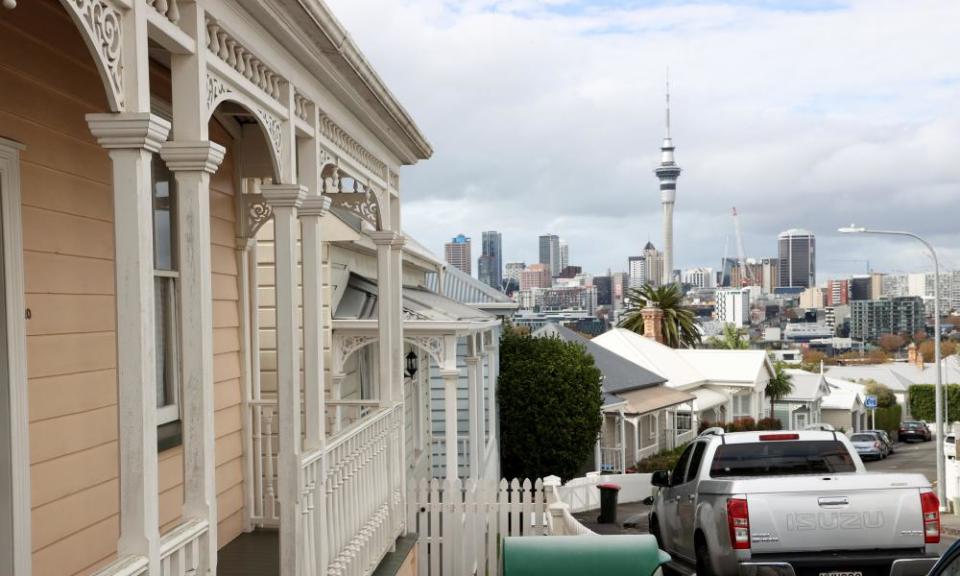‘Life is tough’: New Zealand charities brace for Christmas surge as cost of living pressures mount
It is a weekday afternoon and a bus loaded with donated goods has pulled up to the Wellington City Mission. Volunteers form a chain to ferry food, nappies and toys, box by box, down the line into the back of the garage that has been lit up with Christmas lights. The long trestle tables fill up quickly.
“This is the biggest haul yet,” one volunteer announces.
“I get emotional looking at it,” says another, peering across the huge stack of goods.
It is the fourth day in a row the bus, which collects donated goods from companies, schools and communities across Wellington in the lead up to Christmas, has arrived laden with goods.
The donated items will be sorted and transferred to the Mission’s free toy shop and free supermarket, giving people the option to choose what they want. The initiative marks a shift away from the traditional model of handing out food and toy parcels, to one designed to give a feeling of dignity and normality for those seeking help.
Related: New Zealand, particularly vulnerable to a housing crash, tightens its belt as rates soar
This year, the shelves are well stocked. The giving has been generous – and it needs to be, because for many New Zealanders, the lead up to this Christmas will be the toughest yet.
The country is experiencing stubbornly high inflation, which has barely budged from its 30-year high of 7.3%. The high costs of food, housing and transport are the main drivers. Those fortunate enough to own their own home in New Zealand’s notoriously overheated housing market are looking at a future of financial instability: huge leaps in interest rates will pile pressure on the budgets of many households, particularly those who bought in the past three years, when the market was at its peak. Meanwhile, wages cannot keep up with the rate of inflation, despite unemployment being down and salaries creeping up.
“The pandemic, the fragility of work and the economic challenges means life is really, really tough for the people we are working with,” says Murray Eldridge, the missioner for Wellington City Mission.
“There is a lot of commentary that the cost of living crisis affects all of us, and my response to that is: yes, it does, but it doesn’t impact on us all evenly.”
Eldridge says there has been a significant shift in the level of need since pre-Covid days. He estimates there has been a 400% increase in the demand for the Mission’s services, with an ever-widening demographic of people, including those he reluctantly calls “the working poor”, seeking support.
“Our volume of response to people’s needs, in terms of food supply and other things, have gone up multiple times,” Eldridge says. “It’s only going to get worse. I suspect we are in for a tough year.”
Growing demand
A survey released last month of 43 food charity services – which support a combined half a million people – found that demand for food continues to skyrocket, and that the charities are only just managing to keep up with the need.
The New Zealand Food Network, an organisation that redirects food destined for landfill into communities, asked its members about their experience with food support between January and June 2022.
The results showed that the charities were not always able to meet the needs of the community. It also found that the top three reasons for requesting food support were low household income due to low-paying jobs (79%), unemployment (70%), and Covid-19 isolation (60%).
“We thought that we may see a levelling off from last year to this year, in terms of the need in the community – that has not been the case,” says Gavin Findlay, the network’s chief executive.
While the survey was conducted over the first six months of the year, the second half always brings added pressure, Findlay said, especially with the enormous expectations on families over Christmas.
Welfare ‘not enough to live on’
The Auckland City Mission is also gearing up for what will be an exceptionally busy run-up to the holiday season.
“We are doing three, nearly four, times the distribution of food parcels that we were doing in February 2020, before Covid,” says Helen Robinson, its missioner. “It’s just increased and that’s not going anywhere.”

The cost of housing is a major issue for people. “It would not be uncommon for people that we are seeing to say that 40%-80% of their income is blown on their housing costs,” she says.
There has been a growth in the number of families who are on two incomes, as well as people in permanent full-time work, seeking additional support, Robinson says, but overwhelmingly those coming to the Mission are on benefits, which are “simply not enough to live on”. The burden of inequality is not evenly spread, she adds, with Māori and Pasifika women disproportionally affected.
Robinson worries about those who are not seeking support. “If you asked me, hand on heart, whether we were meeting the needs of Auckland, I would say: we’re really not.”
The pandemic has been a crisis, Robinson says, but it should now also act as turning point for the government to provide long term support to people so they do not need to rely on places like the Mission.
“The Mission will always be there for people who are going hungry, but the answer to this is not in food parcels.”

 Yahoo Movies
Yahoo Movies 
